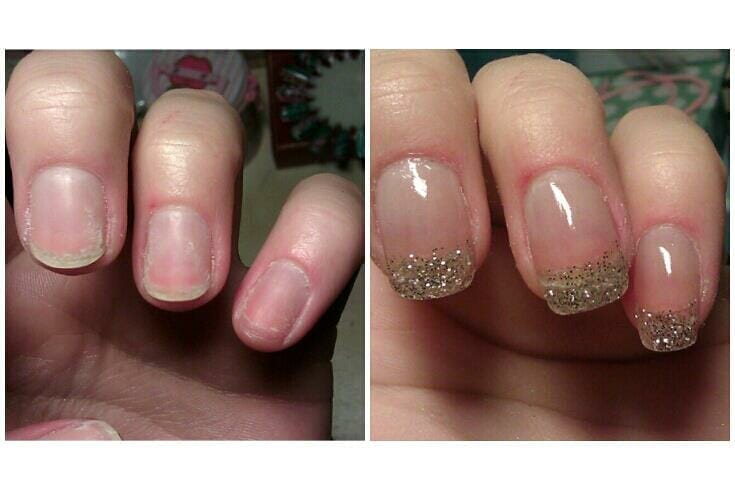Wondering if you can have acrylic nails during surgery? It’s a common question for those who love stylish nails. While acrylic nails may enhance your appearance, they can pose potential risks during surgical procedures. Medical professionals advise against wearing acrylic nails due to the potential for bacteria buildup and difficulty in accurately monitoring oxygen levels through the nail bed. It’s best to remove acrylic nails before undergoing surgery to ensure optimal safety and hygiene throughout the procedure.

Can acrylic nails interfere with surgical procedures?
Acrylic nails have become a popular trend in the world of fashion and beauty. Many people opt for acrylic nails to enhance the appearance of their hands. However, when it comes to surgical procedures, the presence of acrylic nails can pose certain risks and complications. In this section, we will explore the potential interference that acrylic nails can have during surgical procedures.
One of the main concerns with acrylic nails is their potential to harbor bacteria and other microorganisms. Surgical procedures require a sterile environment to minimize the risk of infection. Acrylic nails, especially if not properly maintained and cleaned, can accumulate dirt, debris, and bacteria, which can potentially contaminate the surgical site. This can increase the risk of surgical site infections and post-operative complications.
Another issue with acrylic nails is their potential to interfere with medical equipment and devices used during surgical procedures. Acrylic nails, due to their length and thickness, can hinder the accurate reading of vital signs, such as pulse oximetry and blood pressure measurements. This can lead to inaccurate readings, which can have significant implications for patient safety and monitoring during the surgical procedure.
Furthermore, acrylic nails can also pose challenges for healthcare professionals performing the surgical procedure. The length and thickness of acrylic nails may impede the proper fitting of gloves, making it difficult for surgeons and operating room staff to maintain a sterile environment. This can compromise the safety and efficacy of the surgical procedure.
It is important for individuals considering acrylic nails to be aware of the potential risks and complications they can present during surgical procedures. It is recommended to remove acrylic nails prior to any surgical intervention to ensure a clean and sterile surgical environment. This can help minimize the risk of infection, improve the accuracy of vital sign measurements, and facilitate the proper use of medical equipment.
In summary, acrylic nails can interfere with surgical procedures in multiple ways. They can harbor bacteria and increase the risk of infection, hinder the accurate reading of vital signs, and pose challenges for healthcare professionals. It is crucial to prioritize patient safety and cleanliness by removing acrylic nails before undergoing any surgical intervention.
The potential risks of wearing acrylic nails during surgery
While acrylic nails have become a popular fashion trend, they may pose potential risks when worn during surgery. Acrylic nails are artificial enhancements that are applied to natural nails to create a longer and more glamorous appearance. However, their use in healthcare settings, especially during surgical procedures, can lead to various complications and compromises patient safety.
1. Bacterial contamination
Acrylic nails can harbor bacteria and fungi underneath them, creating an environment that promotes the growth of harmful microorganisms. During surgery, healthcare professionals are required to follow strict hygiene practices to minimize the risk of infection. However, acrylic nails can make it difficult to effectively clean and sanitize the hands, increasing the likelihood of contamination. The bacteria and fungi trapped under the nails can be easily transferred to the surgical site, leading to serious postoperative infections.
2. Difficulty in maintaining hand hygiene
Proper hand hygiene is crucial in preventing the transmission of infections in healthcare settings. Surgeons and other healthcare professionals are required to follow strict handwashing protocols before and after surgical procedures. However, acrylic nails can hinder the thorough cleaning of hands, as the artificial nail extensions can trap dirt, debris, and microorganisms. This compromises the effectiveness of hand hygiene practices, putting patients at risk of healthcare-associated infections.
3. Risk of nail breakage or detachment
During surgery, healthcare professionals wear gloves to maintain a sterile environment. However, acrylic nails can increase the risk of nail breakage or detachment, especially when performing tasks that require fine motor skills. Broken or detached nails can become a potential source of contamination in the surgical area, as they may introduce foreign particles or microorganisms. This can compromise the success of the surgical procedure and increase the risk of postoperative complications.
4. Allergic reactions
Some individuals may develop allergic reactions to the chemicals used in acrylic nail application, such as the adhesive and the substances used for bonding the artificial nail to the natural nail. During surgery, the body can react differently to various stimuli, and exposure to these chemicals can trigger allergic reactions. These reactions can range from mild irritation to severe allergic responses, potentially leading to complications during surgery.
5. Interference with medical equipment
Acrylic nails can interfere with the proper functioning of medical equipment used during surgical procedures. The artificial nail extensions can make it challenging to wear gloves that fit properly, compromising the dexterity and precision required when handling surgical instruments. This can lead to difficulties in performing procedures accurately and may result in surgical errors or complications.
In summary, wearing acrylic nails during surgery carries potential risks that can compromise patient safety and surgical outcomes. These risks include bacterial contamination, difficulty in maintaining hand hygiene, the risk of nail breakage or detachment, allergic reactions, and interference with medical equipment. Healthcare professionals should adhere to strict hygiene protocols and avoid wearing acrylic nails during surgical procedures to minimize these risks and ensure optimal patient care.
Guidelines and Recommendations for Nail Care Before Undergoing Surgery
Preparing for surgery involves taking care of various aspects of your health and well-being to ensure a smooth and successful procedure. While you might be busy with pre-surgery preparations, it’s essential not to overlook the importance of nail care. Proper nail care before surgery can help prevent infections and complications during and after the procedure. In this section, we will provide you with some guidelines and recommendations to follow for nail care before undergoing surgery.
1. Trim and Clean Your Nails
Before your surgery, it is crucial to trim your nails to a reasonable length. Long nails can harbor bacteria and increase the risk of infection. Use a clean and sharp nail clipper to trim your nails straight across, avoiding curved edges that might lead to ingrown nails. Additionally, gently clean your nails with mild soap and warm water to remove any dirt or debris.
2. Avoid Nail Polish and Artificial Nails
Prior to surgery, it’s advisable to remove any nail polish, gel polish, acrylic or artificial nails. These products can interfere with the monitoring of your oxygen levels during the procedure, making it difficult for healthcare professionals to assess your well-being accurately. Additionally, nail polish and artificial nails can harbor bacteria, increasing the risk of infection.
3. Keep Your Nails Hydrated
Moisturizing your nails can help keep them healthy and prevent them from becoming brittle and prone to breakage. Apply a moisturizing cream or oil specifically designed for nails and cuticles regularly in the days leading up to your surgery. This will help maintain the integrity of your nails and minimize the risk of damage during the procedure.
4. Avoid Nail Biting or Picking
Nail biting and picking can introduce harmful bacteria into your nails and surrounding skin. It’s important to avoid these habits before surgery to reduce the risk of infection. If you find it challenging to break these habits on your own, consider seeking assistance from a healthcare professional or exploring strategies such as nail-biting deterrent products or behavioral therapy.
5. Notify Your Surgeon of Any Nail Conditions
If you have any pre-existing nail conditions such as fungal infections, ingrown nails, or abnormalities, it is crucial to inform your surgeon before your procedure. Certain nail conditions might require specific precautions or additional care to minimize the risk of complications. Your surgeon can provide you with personalized advice based on your situation.
6. Maintain Proper Hand Hygiene
In addition to nail care, it’s vital to maintain proper hand hygiene before surgery. Wash your hands thoroughly with soap and water for at least 20 seconds, paying close attention to your nail area. Avoid touching your face or other surfaces to minimize the risk of introducing bacteria to your surgical site. If soap and water are not available, use a hand sanitizer with at least 60% alcohol content.
In summary, taking care of your nails before surgery is an essential part of overall pre-operative preparations. By following these guidelines and recommendations, you can reduce the risk of infections and complications, ensuring a successful and safe surgical experience. Always consult with your healthcare provider or surgeon for personalized advice based on your specific situation.
Alternatives to Acrylic Nails for Individuals Preparing for Surgery
When it comes to preparing for surgery, there are certain precautions and measures that need to be taken to ensure a safe and successful procedure. One such precaution is the removal of acrylic nails. While acrylic nails may enhance the appearance of your hands, they can pose risks during surgery such as interfering with oxygen levels and causing infection. If you are scheduled for surgery and have acrylic nails, it’s essential to consider alternatives to ensure your safety and the success of your procedure.
1. Gel Nails
Gel nails are a popular alternative to acrylic nails, especially for individuals preparing for surgery. Unlike acrylic nails, gel nails are made from a gel-like substance that is applied to your natural nails and cured under a UV or LED light. Gel nails are not as thick as acrylic nails and are generally more flexible, making them a safer option during surgery. Additionally, gel nails can be easily removed without the need for filing or drilling, minimizing any potential damage to your natural nails.
2. Nail Wraps
If you prefer a more natural option, nail wraps can be a great alternative to acrylic nails. Nail wraps are thin, adhesive stickers that can be applied directly to your natural nails. They come in various designs and colors, allowing you to express your style while keeping your nails protected. Nail wraps are easy to apply and remove, making them a convenient choice for individuals preparing for surgery.
3. Natural Nails
If you’re willing to go au naturel, embracing your natural nails is the safest option when preparing for surgery. By keeping your nails short and neatly trimmed, you eliminate any potential risks that artificial nails may pose during your surgical procedure. Additionally, natural nails are easier to maintain and require less time and effort compared to acrylic or gel nails. Consider giving your nails a break and allowing them to grow healthy and strong before your surgery.
4. Press-on Nails
Press-on nails have come a long way in recent years and are now available in a wide range of designs and styles. These nails are pre-shaped and come with adhesive tabs or glue for easy application. Press-on nails provide a temporary solution for individuals preparing for surgery who still want to have beautiful nails without the risks associated with acrylic nails. They can be easily applied and removed, offering convenience and versatility.
5. Nail Polish
If you are looking for a simple, non-invasive alternative to acrylic nails, regular nail polish can be your best friend. Choose a high-quality nail polish that is long-lasting and opt for colors that make you feel confident and stylish. By applying a few coats of nail polish and keeping your nails well-maintained, you can achieve a polished look without the need for artificial nails.
Summary
Preparing for surgery requires careful consideration of your overall health and well-being. Removing acrylic nails before surgery is crucial to minimize potential risks and complications. Thankfully, there are several alternatives available that can provide you with beautiful nails while ensuring your safety during the surgical procedure. Whether you opt for gel nails, nail wraps, natural nails, press-on nails, or regular nail polish, choosing an alternative to acrylic nails will help you feel confident and ready for your surgery, knowing that you have taken the necessary precautions for a successful outcome.
The Importance of Discussing Nail Care Concerns with Your Surgeon Prior to the Procedure
When it comes to undergoing any surgical procedure, it is essential to have open and clear communication with your surgeon. This communication includes discussing any concerns or questions you may have, including those related to nail care.
Nails may seem like a minor detail, but they can have a significant impact on the success and outcome of a surgical procedure. Whether you are undergoing a minor surgery, such as a hand or foot procedure, or a more complex surgery, such as joint replacement, proper nail care is crucial.
1. Infection Prevention
Poor nail care can lead to increased risks of infection. Bacteria and fungi can easily thrive under improperly maintained nails, which can potentially contaminate the surgical site and increase the risk of post-operative infections. By discussing your nail care concerns with your surgeon, they can provide specific instructions on how to properly clean and maintain your nails leading up to the procedure.
2. Anesthesia Considerations
During surgical procedures, anesthesia is often administered to ensure the patient’s comfort. However, certain nail conditions or nail products, such as nail polish or artificial nails, can interfere with the accuracy of vital signs monitoring. In some cases, the anesthetic gases may not be correctly absorbed or administered, leading to complications. By informing your surgeon about your nail care routine, they can advise you on whether any modifications are necessary prior to the procedure.
3. Surgical Site Evaluation
Your nails can reveal important information about your overall health. Certain nail conditions, such as infections, inflammation, or abnormal growth patterns, could indicate underlying medical conditions. By discussing your nail concerns with your surgeon, they can evaluate the health of your nails and determine if any additional tests or treatments are necessary prior to the surgery.
4. Enhancing Surgical Outcomes
Well-groomed and maintained nails can contribute to overall surgical success. For example, in hand surgeries, short and clean nails minimize the risk of bacteria entering the surgical site and promote faster healing. By discussing your nail care concerns with your surgeon, they can provide guidance on the appropriate length and cleanliness of your nails leading up to the procedure.
5. Post-Operative Care
Proper nail care continues after the surgical procedure. Your surgeon will provide instructions for post-operative care, which may include specific nail care guidelines. This can include avoiding certain nail products, maintaining cleanliness, and watching for signs of infection. By discussing nail care concerns prior to the procedure, you can ensure that you are fully prepared for the post-operative journey.
Summary
Prior to undergoing any surgical procedure, it is crucial to discuss your nail care concerns with your surgeon. By addressing these concerns, you can minimize the risk of infections, improve anesthesia accuracy, evaluate underlying health conditions, enhance surgical outcomes, and properly care for your nails post-operatively. Open communication with your surgeon ensures that you are well-prepared for the procedure and can contribute to a successful surgical experience.

FAQs
Can I have acrylic nails during surgery?
In most cases, it is recommended to remove acrylic nails before surgery. Acrylic nails can interfere with the accuracy of blood oxygen readings and may need to be removed for anesthesia administration. It is always best to consult with your surgeon or anesthesiologist for specific instructions.

Conclusion
In conclusion, while it may be tempting to get acrylic nails before undergoing surgery, it is generally not recommended. Acrylic nails can pose potential risks and complications during the surgical procedure. The chemicals and fumes associated with acrylic nails may interfere with the anesthesia and other medications used during surgery. Additionally, acrylic nails can harbor bacteria, increasing the risk of infection. It is always best to consult with your surgeon and follow their guidelines to ensure a safe and successful surgical experience. Your health and well-being should be the top priority during this time.
